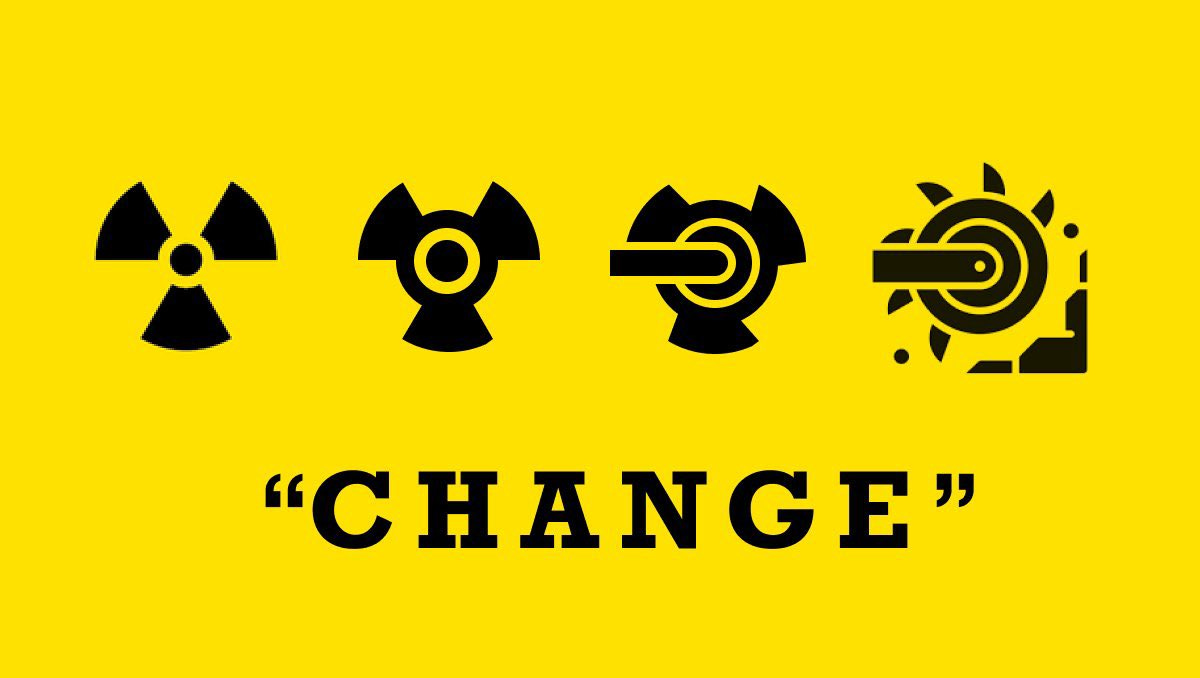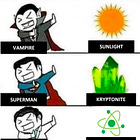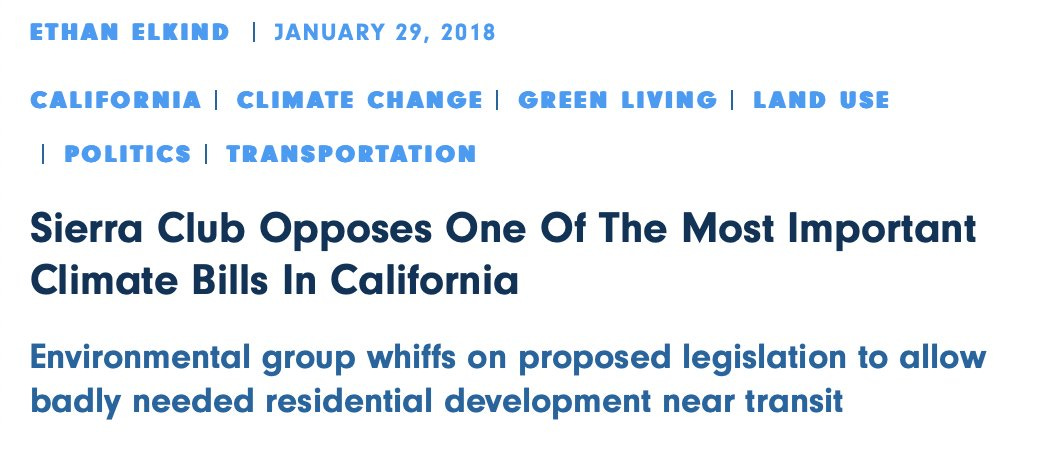 |
| Click above for the Substack article |
Me? I'm an NTN guy. "Natural Gas to Nuclear". Gas is much cleaner than coal, but can fill in until clean and safe nuclear can be built. It really is a good bridge. Though the Greenies hate it, because it's not "perfection", perfection being 100% wind and solar. As always, "perfection is the enemy of the good."
Last week Greenpeace was ordered to pay over £507m ($660m) in damages to the oil company Energy Transfer. A North Dakota jury ruled that Greenpeace was liable for defamation, holding it financially responsible for its role in one of the largest anti-fossil fuel protests in US history.
Over the years I have been involved with a multitude of charities and voluntary organisations. I completed an internship with War on Want, volunteered for several years at my local Oxfam bookshop, and campaigned for Greenpeace, Friends of the Earth, Amnesty International, and numerous other organisations, both large and small.
These organisations are typically regarded as the "good guys," their impeccable branding leading us to believe they are firmly on "our" side, battling the forces of injustice. But just as my experiences taught me otherwise, people are generally becoming increasingly aware that some of these groups - particularly within the environmental sector - have often caused more harm than good to the causes they claim to serve. Several have been implicated in dubious activities, including accepting funding from Russia to lobby against domestic energy production. But still, they remain financially afloat. So why are people still donating money to them?
Since these organisations are classified as charitable or not-for-profit, they often heavily rely on public donations for funding. But they also lack transparency regarding the origins of their funding, so we don’t know the identity of everyone who has contributed, funded and worked with them. This is concerning, since they are so influential, successfully shaping public opinion, lobbying politicians, and crafting environmental discourse.
If a major corporation were this secretive about its funding and partnerships, these same organisations would be the first to accuse them of questionable practices and shady dealings.
Instead, they get away with all manner of bad behaviour. Allow me to share a more personal example, closer to home, involving a man named Jim. Years ago, he wrote this hit piece about me for Friends of the Earth Australia, and he has relentlessly hounded me ever since. After I blocked him across my social media platforms, he created a Substack account purely for the purpose of continuing his attacks.
Rather than engaging in a reasoned debate about nuclear technology (which I have always been open to), his approach is personal and vindictive. He questions my credentials as a Science Communicator (I hold an MSc), labels me a fraud, and attempts to harass me into responding. His tactics centre on calling me a liar. When I reached out to Friends of the Earth about this, they responded with a generic statement about not tolerating bullying, but the issue was never addressed, and the posts remain live.
Why am I such a threat to Jim, and why does an organisation that claims to fight bullies allow such behaviour to persist?
The answer becomes clear when you recognise that these organisations don’t actually stand for the values they claim to uphold.
Read my post about the four central beliefs of traditional environmentalists:
The answer is simple: these groups have one thing in common: they follow an ideology that has nothing to do with protecting the Earth. Despite their strong branding and marketing, what they truly share is the ability to hoodwink and greenwash.
Greenwashing giant: Greenpeace
Greenpeace began as a grassroots organisation whose members seemed to genuinely wanted to make the world a better place. They fought to save whales, raised awareness about pollution, and worked to protect the rainforests.
But in later years, their focus shifted, as they stretched their anti-weapons activism to also include nuclear energy. For decades, the organisation has steadfastly opposed nuclear energy, perpetuating numerous myths about the technology. Their actions have had a profound impact on energy policy, such as Germany's decision to phase out nuclear energy. Greenpeace continues to lobby governments worldwide, urging them to reject nuclear energy in favour of what they feel are "clean" and “safe” energy sources.
Read my post debunking Greenpeace’s lies about nuclear energy:
But here’s the rub. Greenpeace’s anti-nuclear crusade is allegedly centred on opposing fossil fuels and supporting renewables - right? Greenpeace openly advocates for a transition to 100% “renewable energy” sources, with the following statement on its website: “Greenpeace opposes the expansion of oil and gas extraction and use, advocating for a transition to renewable energy sources and a ‘world beyond fossil fuels’ to combat climate change.”
But donors are being deceived, because there are several examples of the organisation using its funds and platform to covertly support gas. In one example, Greenpeace founded a “renewable” energy company selling “proWindgas” with the aim of providing “100% renewable gases,” while in truth offering a mix of 89% gas, 10% biogas, and 1% green hydrogen. The company also described this as “the most ambitious plan in Germany” at the time… Make of that what you will.
Similarly, while donors believe they are supporting pro-renewable campaigns when they send money to Greenpeace, the organisation actually opposes the infrastructure needed for wind and solar power. One example is the plan for a massive undersea power cable designed to transport electricity generated by solar farms in Morocco directly to the UK. In a recent report titled Beyond Extractivism: Towards a Feminist and Just Economic Transition in Morocco and Egypt, Greenpeace criticises the “neocolonial dynamics” of various green projects, including this one.
You will have your own opinions on this cable proposal, but I highly doubt that “neo-colonialism” is one of your objections. It simply isn’t a concern for most people. Clearly, this organisation has lost its way, and far diverged from the ordinary member of the public who genuinely cares about the environment.
From its lack of transparency in operations and fund allocation to its opaque internal processes, decision-making, and financial reporting, Greenpeace’s leadership is also unclear about how it prioritises certain issues or decides which campaigns warrant more attention. We can only guess at who may be involved in orchestrating some of its campaigns.
Greenpeace is also known for disrupting scientific experiments, particularly against biotechnology. On its website Greenpeace states that: “Genetic engineering is a neo-colonial technology undermining food and seed sovereignty.”
Read my post on the need for gene-editing and the harm caused by anti-GMO activists:
There it is again: "neo-colonial." If they rebranded to make that part of their main message, would people still be so eager to send them their hard-earned cash?
The organisation’s agenda is clearly driven more by ideology and the pursuit of media attention than the aim of solving environmental problems. If anything, they stand in the way of many science-backed environmental solutions. Yet solving these problems is the very thing that people think they are paying them to do.
Greenwashing giant: Friends of the Earth (FoE)
In 1970, Robert O Anderson, a leader in the petroleum industry and CEO of Atlantic Richfield Co, donated $200,000 to help fund Friends of the Earth. The group was actively anti-nuclear from the beginning, and while it has changed its stance over the years, it remains anti-nuclear to this day.
Friends of the Earth also opposes GMOs and geoengineering solutions such as carbon capture and solar radiation management, which are aimed at addressing climate change. Again, people still donate to them with the belief that they are “friends” of the Earth.
Greenwashing giant: Sierra Club
With almost 4 million members and supporters, the Sierra Club is one of the most influential grassroots environmental organisations in the United States. Yet, it states that it remains "unequivocally opposed to nuclear energy."
In its early years, the Sierra Club actually supported nuclear technology, with members like Will Siri (then president) and Ansel Adams (photographer and board member) being strong advocates.
The Sierra Club's opposition to nuclear energy developed over time, and became a core tenet of the organisation's environmental policies. Why? According to a report by the Environmental Policy Alliance, a shell corporation with connections to a Russian state oil interest "donated" $23 million to an environmental bundler, which then passed the funds to environmental organisations including the Sierra Club, the Natural Resources Defense Council (NRDC), and the League of Conservation Voters.
There’s more.
The Sierra Club opposes efforts to make it easier for the US Forest Service to conduct prescribed burns and fuel reduction projects, which are essential for wildfire prevention. While the Sierra Club campaigns against the construction of transmission lines, it has also sued the government for not doing enough to address energy infrastructure needs. The organisation opposes many "renewable" energy projects. And it has taken a stance against desalination efforts in states that frequently experience droughts and are agricultural producers. It almost sounds like their goal isn’t environmentalism, but degradation of Western civilisation and progress, doesn’t it?
Greenwashing giant: The World Wildlife Fund (WWF)
WWF is one of the world’s most recognised environmental organisations, but it often prioritises wildlife over the needs of actual people. Many of its conservation projects has focused on preserving "pristine" landscapes without considering the rights of the people who depend on those lands for their livelihoods. This has led to reported human rights abuses such as forced evictions, violence, and the criminalisation of traditional practices like hunting or resource gathering. And of course, while WWF claims to support reducing carbon emissions and transitioning to cleaner energy, it opposes nuclear energy and advocates instead for a 100% “renewable energy” system.
Lack of transparency and accountability
Unlike government agencies, which are accountable to elected officials and the public, NGOs often operate with minimal oversight and independence. Since many NGOs are private entities with charitable status, they are not held to the same standards as public institutions. This lack of regulation has led to numerous cases of financial mismanagement and corruption, the extent of which is not fully known. I have only touched upon some of what we know here.
So, yes, we do need to “defund” NGOs - but as they rely on public donations and lack transparency about their larger funding sources, it’s not as simple as that. Clearly, new rules are needed to ensure accountability and transparency over received funding. But when it comes to public donations, it’s up to individuals to highlight the harm these organisations are causing, and show donors how the actions of these groups often contradict their stated missions.
Meanwhile, Greenpeace has warned that it could face bankruptcy due to the fine, which would potentially end over 50 years of the organisation’s activism. Given their intense focus on ideology over evidence-based solutions, that outcome might actually be the most green and peaceful result for the planet.




